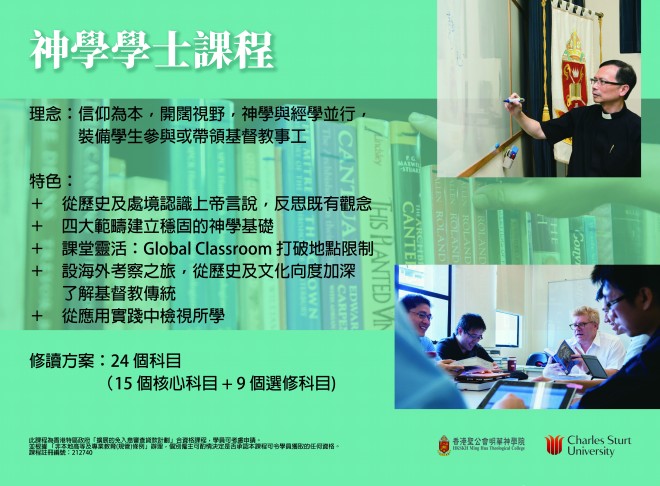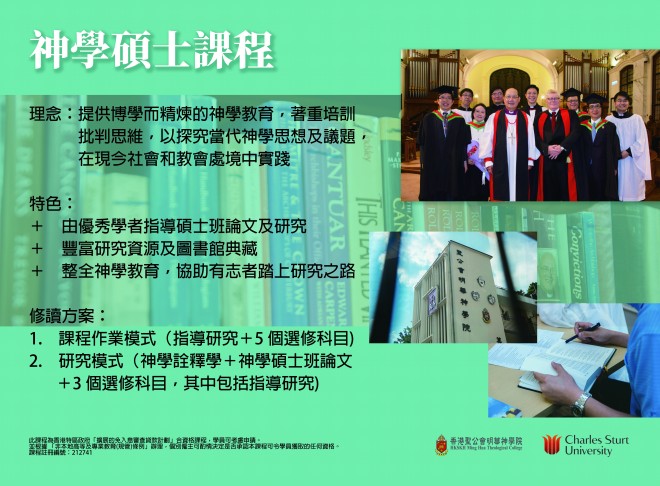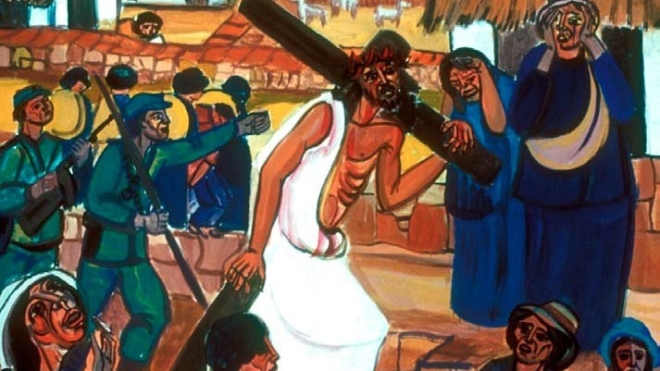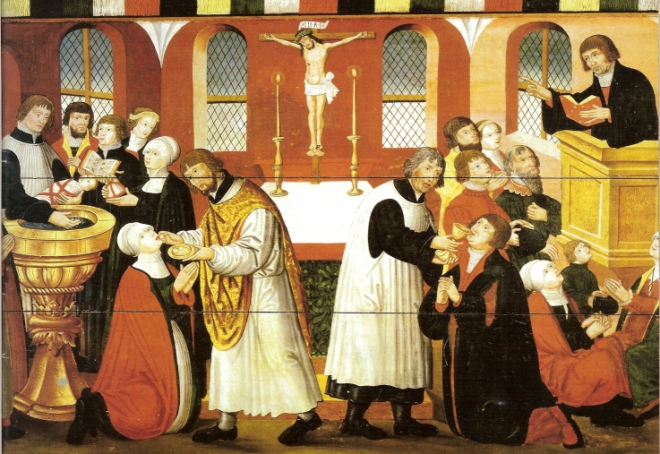

神學學士及碩士課程早鳥優惠
(即日起至 7月31日)
- 報名費用全免(原價 HK$200)
- 可免費享用神學院儲物櫃一學期(原價 HK$250/學期)
- 獲贈影印卡儲值 HK$250
詳情:明華神學院
報名及查詢:2521 7708


(即日起至 7月31日)
詳情:明華神學院
報名及查詢:2521 7708

I grew up in Virginia, the oldest British colony in North America, where the Church of England was the established church for almost two centuries. I attended theological college and was ordained in the Diocese of New York, which was the other centre of the Anglican presence in North America. And I attended a seminary that prided itself on teaching Americans how to be Anglicans. It drilled into us the idea that there was an Anglican way to do everything: how to perform a baptism, how to celebrate the Eucharist, how to conduct a funeral. When I graduated from seminary, I knew I might not know how to do everything a priest is called upon to do, but I knew what an Anglican was!
And then something happened: Continue reading Tradition and Context: Friends or Enemies?

Professor Gareth Jones, Principal of HKSKH Ming Hua Theological College, has a sense of urgency when it comes to theology. Continue reading Meet the Faculty: Professor Gareth Jones

Mrs Sandy Poon
I was deeply saddened to learn of the death of Mrs Sandy Poon, who passed away just before Easter after a long illness. Sandy will be very fondly remembered by everyone at Ming Hua for her grace, her loving thoughtfulness, and her devotion to our community, all founded upon a quiet but certain Christian faith. Continue reading In Memoriam

靈修:尋求進深與上帝的關係 梁秀珊牧師
自從開始閱讀靈修課本及實踐靈修操練後,一直也期望進深與上帝的關係,經歷上帝就是那位「叩門就給人開門」的主。 Continue reading Ignatian Spirituality 聖依納爵式的靈修體驗

Author: Chaoluan Kao
Publisher: Vandenhoeck & Ruprecht
By Dr Jim West, Lecturer in Biblical Studies and Reformation Studies at Ming Hua
In this book Chaoluan Kao looks at popular piety at the time of the European Reformations through the study of 16th and 17th century Protestant prayer books. Continue reading Reformation Prayers

The four Gospels give us four different accounts of the Passion of Jesus. Each Gospel writer not only gives his own account of the events leading up to the death of Jesus, so that the details are not the same in each story, but they also see the event of the Passion in their own particular way, bringing their own insight to bear on it. In a real sense, there is not, therefore, just one account of the Passion of Jesus, but four of them. Continue reading The Passion Story